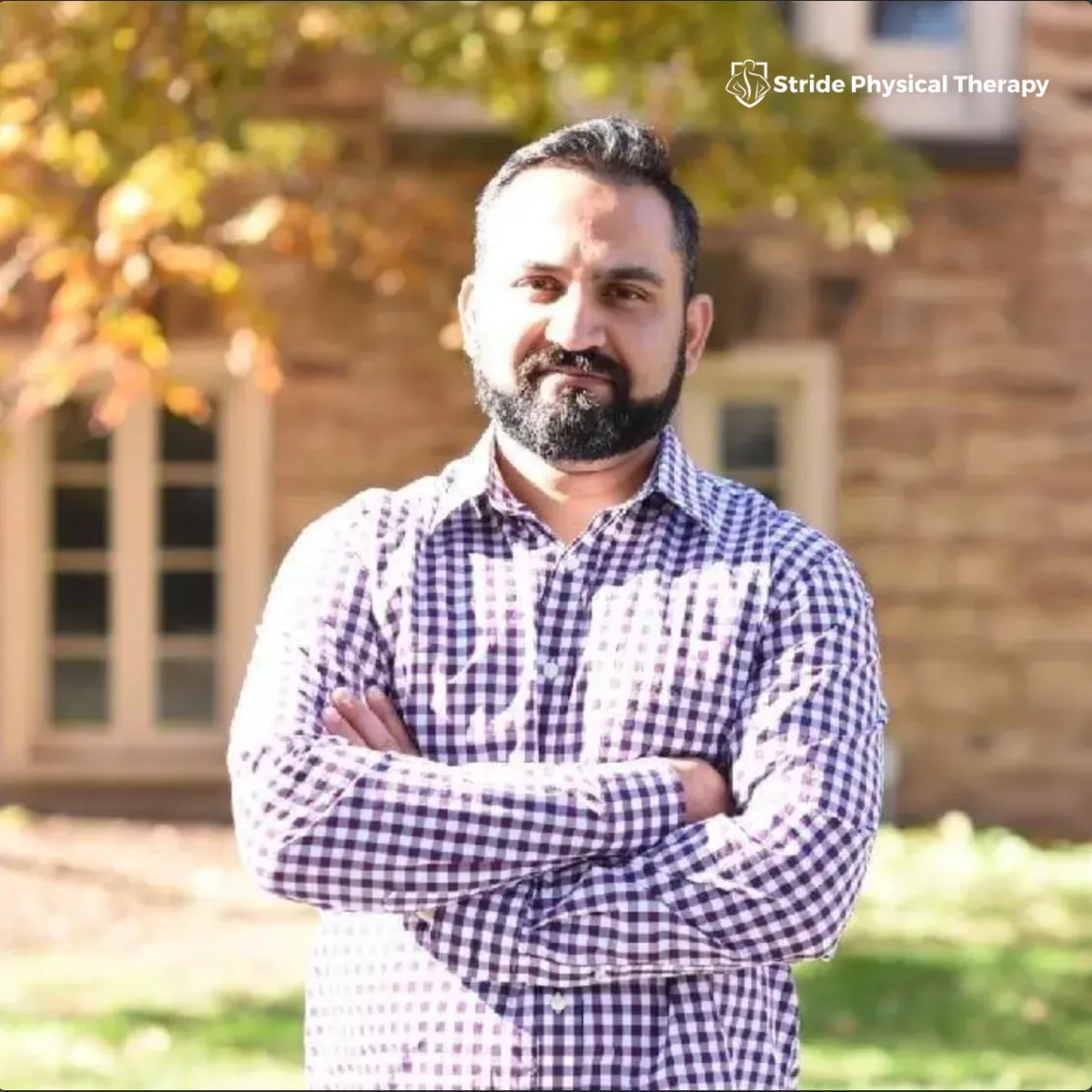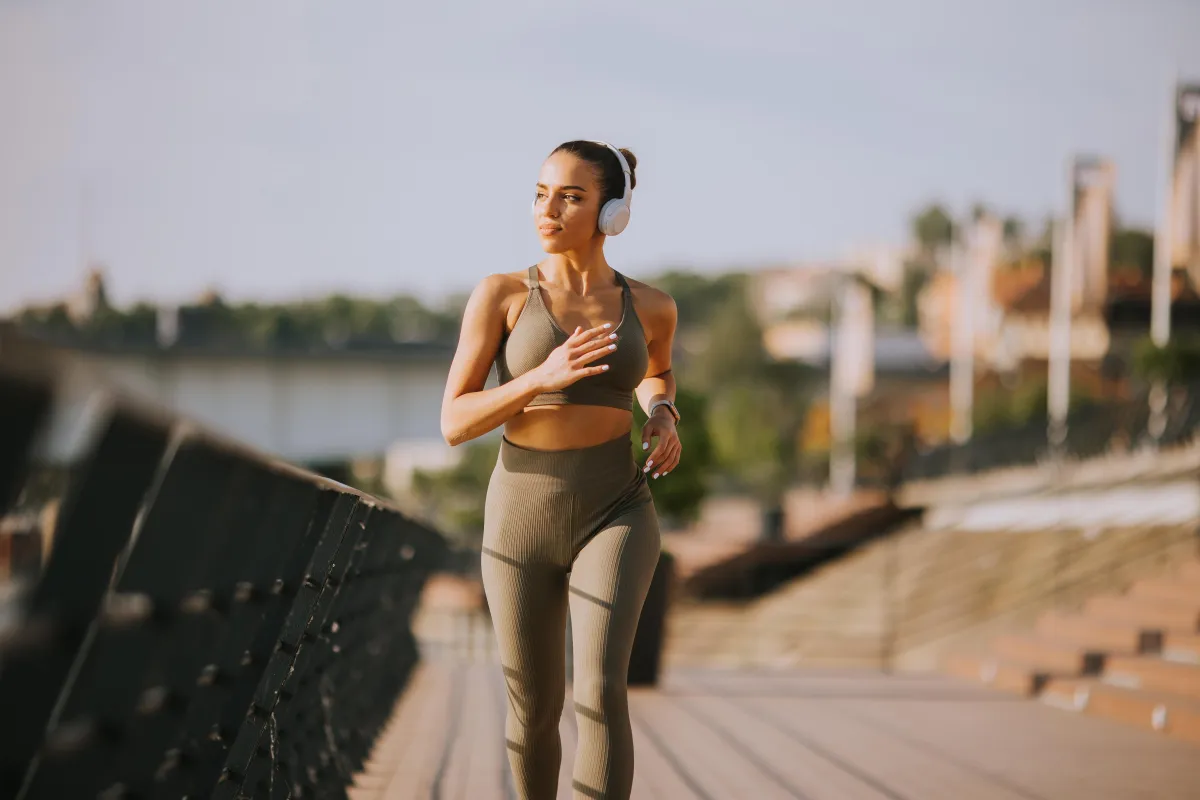The plantar fascia is a slim, strong band that runs beneath your foot, forming the arch. It stretches from your heel to your toes.
Plantar fasciitis is when the plantar fascia, a band in your foot, gets inflamed from too much stretching or usage, leading to heel and foot pain. This can affect one or both feet, often happens from standing a lot, and is a typical foot problem for active men aged 40 to 70.
Causes of Plantar Fasciitis
Plantar fasciitis is when the plantar fascia ligament gets strained or irritated. Constant strain might cause small tears in the ligament, causing pain and swelling that makes walking hard.
Strains can result from:
1. Having a very high or low arch in your foot.
2. Being overweight or quickly gaining weight.
3. A stiff Achilles tendon, the link between your calf and heel.
4. Beginning a fresh activity or boosting its difficulty.
5. Poor footwear choices like too soft soles, ill-fitting shoes, or inadequate arch support.

Quick Links
FAQs
Symptoms of Plantar Fasciitis
Plantar fasciitis typically causes heel and foot pain and stiffness. This pain is usually worse:
1. When you first get up in the morning.
2. If you walk after long periods of sitting or standing.
3. When going up stairs.
4. Following exercise.
Diagnosis
Your doctor can diagnose plantar fasciitis by discussing your medical history and checking your foot for pain, firmness, or redness on the bottom. They might observe how you stand and walk and look into other factors like high arches.
Your doctor may request foot X-rays to check for a stress fracture (a tiny crack in the bone), or conditions like a heel spur, an excess buildup of calcium on the heel bone.
Treatment for Plantar Fasciitis
Treatment includes simple steps to ease the condition. These steps are: 1. Rest: Begin with rest, which helps lessen pain and protects the ligament from more harm.
2. Ice: Apply ice by rolling your foot over it. Do this for 20 minutes, 3-4 times daily, to decrease swelling.
3. Medications: NSAIDs can be used to ease pain and lessen inflammation.
4. Exercise: Try calf and plantar fascia stretches to alleviate pain.
5. Steroid Injection: An injection may be given in the plantar fascia to lessen pain and swelling.
6. Shoes & Orthotics: Supportive footwear and orthotics can make walking or standing more comfortable.
7. Night Splints: Your doctor may advise wearing night splints to stretch the plantar fascia during sleep.
8. Physical Therapy: Learn stretching exercises, massage techniques, and ice applications.
9. ESWT: Physical therapists might use shockwave impulses to help heal the plantar fascia.
Surgery for Plantar Fasciitis
Surgery is an option if after a year, other treatments haven’t helped. The type of surgery you'll get depends on your specific case.
Gastrocnemius recession surgery lengthens tight calf muscles to reduce strain on the plantar fascia. Your surgeon will make your calf muscle longer, improving ankle movement. It's done with an open cut or through a tiny cut using an endoscope, a camera-equipped tool.
Plantar Fascia Release: Should you retain good ankle movement but still suffer from heel pain, we suggest a partial release surgery. In this, your surgeon will delicately slice a portion of your plantar fascia ligament to lessen the strain. While this operation can be done using an endoscope, the open incision method is simpler and carries a reduced likelihood of harming nerves.
Risks and Complications
Surgery for plantar fasciitis is usually safe, but like all surgeries, risks exist. Possible issues include:
1. Infection.
2. Nerve damage.
3. Persistent pain.
MEET YOUR RECOVERY TEAM

Kanwal Bhardwaj
PT, M.Sc.PT, CIMT, CMNT
Meet Kanwal Bhardwaj, PT, M.Sc.PT, CIMT, CMNT, the driving force behind Stride Physical Therapy in Freehold, NJ. With over 20 years of dedicated experience in the field, Kanwal brings a wealth of expertise and a passion for holistic healing to his practice. Kanwal's journey began with a Master of Science in Orthopedic Physical Therapy from Quinnipiac University in 2004. Over the years, he honed his skills and gained invaluable insights during 18 years of service in outpatient physical therapy offices. In 2014, fueled by a desire to deepen his understanding of patient care, he pursued a manual therapy certification (CIMT). This transformative experience allowed him to adopt a whole-body perspective, focusing on treating the root cause rather than just the symptoms...
At Stride Physical Therapy, we're dedicated to transforming lives. With a focus on the root cause of your condition, we're here to help you regain mobility and embrace an active lifestyle. What sets us apart? Our genuine passion for what we do. Let's stride towards a brighter tomorrow together.
Elevate Your Health with Our All-Inclusive Wellness Services!
Take one step closer to a pain-free life with Stride Physical Therapy! Discover medication and surgery-free solutions with our sessions.
Health Blog

5 Activities To Improve Your Health
Living with constant pain can make the thought of exercise seem impossible. But the reality is, adding even gentle physical activity to your daily routine can significantly enhance your well-being, ease of movement, and general happiness. Read on to discover the benefits of staying active for a healthier, more comfortable life!
The Importance of Good Health
Being healthy is all about your body working at its best, from breathing to blood flow to digesting food. You don't need to be a top athlete - every little thing you do for your body counts toward better health. At Stride Physical Therapy, your physical therapist can guide you with exercises, stretches, and diet tips to boost your health and fitness level.
Physical Therapy Can Improve Your Overall Health Naturally!
Whether on your own or within a full physical therapy program, diverse activities can aid recovery and pain management. Our physical therapist can craft a personalized exercise plan matching your recovery goals if you're healing from injury, uncertain about what exercises suit you, or struggling with chronic pain.
Our expert will evaluate your health condition and goals to recommend the ideal exercises. Combining this with therapeutic techniques like massage, ultrasound, dry needling, hot and cold treatments, acupuncture, or laser therapy can amplify your healing. They work by repairing tissues, soothing inflammation, and alleviating pain, thus enhancing movement and quality of life.
5 Activities to Enhance Your Health
Cycling
Cycling enhances heart health, balance, and leg strength. It’s also lower-impact than running, making it suitable for those with back or knee issues.
Swimming
Swimming reduces the effects of gravity on the body, making it ideal for individuals with arthritis or extremity injuries. Even non-swimmers can benefit from water activities.
Running
Running improves heart and lung health and can reduce pain sensitivity. The "runner's high" offers pain-reducing benefits for chronic pain sufferers.
Weight Training
Weight training builds muscle tissue that supports joints and helps maintain bone density, reducing muscle wastage as you age.
Walking
Walking requires no special equipment and offers low-impact exercise. It improves circulation and benefits weight-bearing joints, especially for those with arthritis.
Additional Tips for Maintaining Good Health
Living healthily requires work, but it gets easier. It's important to eat well, and although exercise may be tough if you have chronic pain, it's key. Opt for physical therapy over medication to tackle pain and lead a healthier life.
Get on Track to Better Health with Physical Therapy
Life is too wonderful to spend it in bed or in a chair. Get up and schedule an appointment with Stride Physical Therapy today. It’s the healthiest move you can make!
Contact Us
Ready to improve your health and quality of life? Contact Stride Physical Therapy in Freehold, NJ, and start your journey to better health and a pain-free life.


